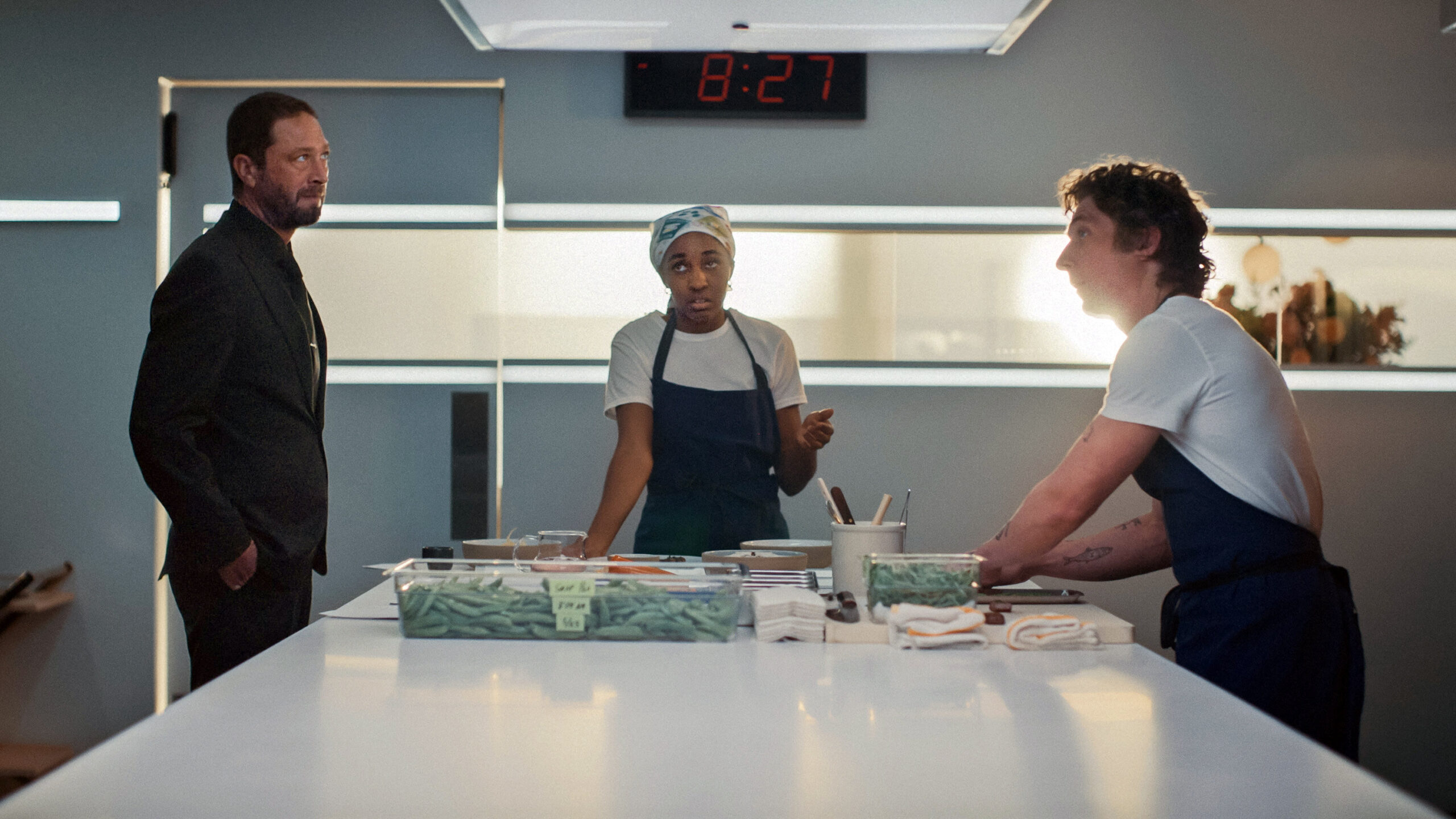Amy Jayasuriya ‘’26
Copy Editor
The Bear has never been a show that shies away from taking risks. From season one’s 17-minute-long take of an episode to season two’s character-focused episode structure, The Bear’s two seasons established the show as a brilliant comedy-drama series deserving of its numerous Emmys. Riding off the high of this praise, The Bear dropped its third season on June 26. But where its first two seasons easily balanced the show’s innovative and unique style with a cohesive narrative, this newest season falters by prioritizing style over substance.
Season three wastes no time with its first episode, “Tomorrow,” taking place the day after the events of the season two finale, where the main character Carmy (Jeremy Allen White) successfully launched the opening of his new high- class restaurant, The Bear. The episode is a glorified montage with little dialogue and abrupt cuts, all tied together beautifully through the show’s score. The episode forces you to remain stuck inside Carmy’s headspace as events from his past, present, and future cut back and forth, leading to a disorienting viewing experience.
While episode one is a strong start, its disorienting nature isn’t something contained to just those first 27 minutes. The second episode is similarly chaotic, as each character takes their turn having a heated one-on-one discussion with Carmy. The episode’s structure sets up each character’s individual conflict for the season. Syd (Ayo Edebri), the chef de cuisine, struggles with Carmy’s incessant need for perfection and control, causing her to wonder if she’s an equal partner in the restaurant or not. Richie (Ebon Moss-Bachrach), the show’s main comic relief screw- up turned front-of-house gentleman, continually butts heads with Carmy after their intense fight in the season two finale. Meanwhile, pastry chef Marcus (Lionel Boyce) struggles to find passion in baking after the death of his mother.
While this episode beautifully sets up the inner turmoils of each of the show’s ensemble cast members, none of these conflicts are ever resolved over the course of the season, leaving an unsatisfied taste in the viewers’ mouths. Season three of The Bear functions as a test of its audience’s patience, continually building up tension and conflict with no ultimate payoff. The show itself seems to acknowledge this as the season ends with the ambiguous “to be continued.”
However, season three’s lack of plot fulfillment is not entirely to its detriment. The season’s two best episodes, “Napkins” and “Ice Chips,” are character-focused episodes that do little to further the season’s main story arc. “Ice Chips” focuses on Carmy’s sister Natalie (Abby Elliott), who goes into labor and is forced to rely upon her unreliable mother, Donna (Jamie Lee Curtis). The show set up their dysfunctional relationship in the season two episode “Fishes,” but “Ice Chips” looks deeper into their relationship, culminating in a fragile understanding between the two characters, exemplified by the final look Donna shares with Natalie as the episode comes to a close.
“Napkins” focuses on the character of Tina (Liza Colón-Zayas) as we journey into her past, where she was laid off from her office job after decades of working there. With no other place to go, she stumbles upon The Beef, the restaurant that eventually becomes The Bear. The episode ends with Tina confiding in Carmy’s late brother Michael (Jon Bernthal), who empathizes with her situation and gives her a job. Tina’s story reflects the much-needed reminder that while work exists as a way to survive and pay the bills, it’s also equally important and much more fulfilling to find passion and purpose in your work as well.
The show’s entire ethos is finding pleasure while striving for perfection and denounces the idea that in order to be truly “great” one must suffer for their art. And while season three does attempt to further that message through Carmy’s character arc, it unwittingly plays into the same trope the show attempts to deconstruct. While Carmy’s overall descent into self-destruction is an interesting one on paper, The Bear doesn’t quite pull off the execution, as watching Carmy make the same mistakes repeatedly and fall into the same toxic patterns becomes increasingly tiresome.
Ultimately, season three falters because it lacks the heart of seasons one and two. The Bear is at its best when it balances its unique story structures and cinematography to service its characters and its overall message. Much like the fictional restaurant itself, The Bear has become too stylish for its own good; by focusing too much on neatly cut montages and excessive use of flashbacks, season three demonstrates that the show desperately needs to return to its roots.
Photo Courtesy of The New York Times/i>



